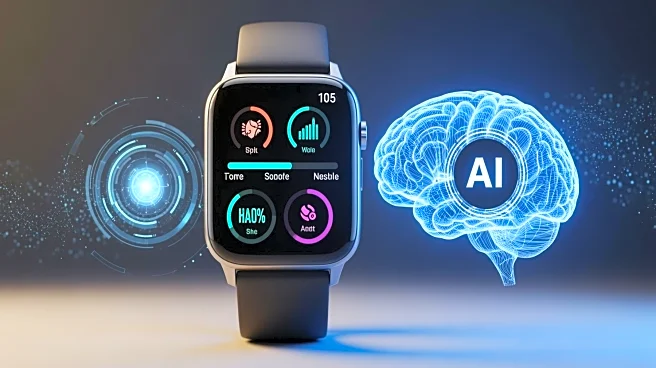What's Happening?
Fitbit has introduced a new AI-driven personal health coach app, Fitbit Coach, as part of its latest app revamp. The app aims to provide users with fitness training, sleep advice, and health/wellness guidance,
leveraging Google's ecosystem of hardware, software, and AI assistant. Initially available to US users aged 18 and older, the app requires a Fitbit Premium subscription and a compatible Fitbit or Pixel Watch device. The app includes features such as 'Ask Coach' chat, personalized workout plans, and sleep insights, although some functionalities like nutrition tracking and advanced metrics are not yet available.
Why It's Important?
The introduction of Fitbit Coach marks a significant shift towards integrating AI into personal health management, potentially transforming how users engage with their fitness and wellness routines. By offering personalized guidance and real-time adjustments, the app could enhance user experience and adherence to health goals. This development may influence the broader fitness technology market, encouraging competitors to innovate and integrate AI capabilities into their offerings. Users stand to benefit from more tailored and efficient health management tools, while Fitbit could strengthen its position in the wearable tech industry.
What's Next?
Fitbit plans to fully launch the Coach app next year, with ongoing updates to include additional features such as nutrition tracking and advanced metrics. As the app evolves, user feedback will be crucial in shaping its development. The rollout may prompt reactions from competitors, potentially leading to similar innovations in the fitness tech space. Fitbit's integration with Google's AI models could also pave the way for further advancements in personalized health technology.
Beyond the Headlines
The use of AI in health and wellness apps raises questions about data privacy and the ethical implications of personalized health tracking. As these technologies become more prevalent, there will be increased scrutiny on how user data is collected, stored, and utilized. Additionally, the reliance on AI for health advice may shift cultural perceptions of fitness and wellness, emphasizing data-driven approaches over traditional methods.









